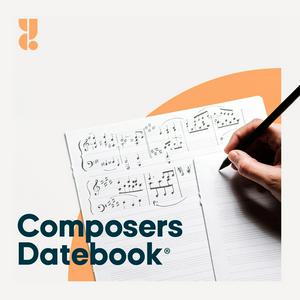Ellington honored -- finally!
SynopsisOn today’s date in 1965, the New York Philharmonic gave the premiere performance of an orchestral work by Duke Ellington, The Golden Broom and the Green Apple, with the composer conducting. On the same program, Lukas Foss conducted the very belated, posthumous premiere of From the Steeples and the Mountains, by Pulitzer Prize-winning American composer Charles Ives.In 1965, Duke Ellington, too, had been nominated for the Pulitzer, but didn’t get it. The Pulitzer jury did, however, recommend that he receive a Special Citation in honor of “the vitality and originality of his total productivity.” That recommendation was rejected, and when word leaked out, a scandal ensued. The 66-year old Ellington remained unflappable, and said, with just a tiny hint of irony, “Fate doesn’t want me to be too famous too young.”“I work and I write,” he said. “My reward is hearing what I’ve done. I’m hardly surprised that my kind of music is still without official honor at home. Most Americans will take it for granted that European music — classical music, if you will — is the only really respectable kind. Jazz is like the kind of man you wouldn’t want your daughter to associate with.”In 1999, the Pulitzer Committee made amends, and Ellington was awarded a Special Citation — belatedly and posthumously — to commemorate the centennial year of his birth.Music Played in Today's ProgramEdward Kennedy (“Duke”) Ellington (1899-1974): The Golden Broom and the Green Apple; Duke Ellington, piano; Cincinnati Symphony; Erich Kunzel, conductor; MCA 42318


